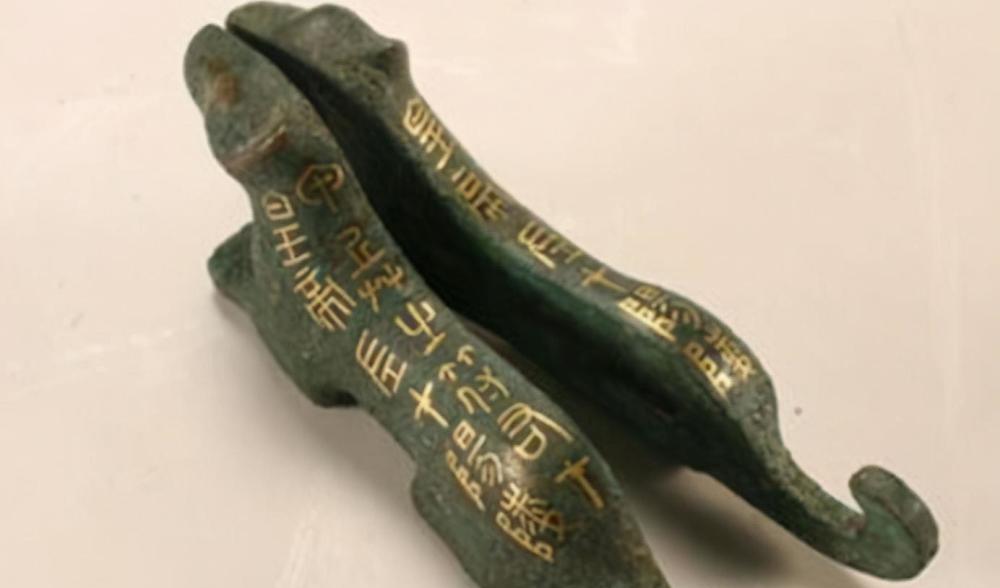The soldier's charm is equivalent to a means of mutual restraint and cooperation between the military power holder and the soldier leader in ancient times, and its production and use are by no means so simple. There are many puppet emperors in history, can they command the army by forging military symbols? The answer is no!

Let's first tell a story: in 257 BC, the State of Qin besieged the capital of the State of Zhao, Handan, and the State of Zhao asked the State of Wei for help. The Duke of Wei, Xin Lingjun Wei Wuji, wanted to send troops, but King Anli of Wei was timid and afraid of things, and did not agree to send troops. So Xin Lingjun found Ru Ji, the favored concubine of the King of Wei, and asked her to steal the soldier's charm at great risk. This story is the famous "stealing of the symbol to save Zhao", recorded in the "History. Biography of The Duke of Wei.
From this story, it can be seen that even if you are a prince of the State of Wei and have powerful economic resources in your hands, you cannot imitate the soldier's charm. There's a reason for that, of course. The soldier symbol is a one-time product in the absolute sense, and there is no possibility of imitation.
The first is the material used to make the runes, usually precious metals or jade. Precious metals themselves are extremely rare, and the puppet emperor lives in simplicity, and his ten fingers do not touch the spring water of the yang, and he cannot get these materials at all. And if the soldier rune is jade, it is even more impossible to imitate. Jade is a natural product, and there are no two identical pieces of jade in the world. Even the problem of material can not be solved, where there is still the possibility of imitation.
Moreover, at the beginning of the production of the soldier's charm, the problem of anti-counterfeiting was actually taken into account. The inscription on the soldier's rune is formed in one piece during the production, so it can achieve the effect of tight seam. If it needs to be replaced, it must also be a pair of replacements, and it cannot be made up later. If it is imitated in the later stage, it will definitely not have the same effect as the original. It's a matter of craftsmanship, and the level of craftsmanship in ancient times was like that. Even in modern times, it is necessary to use high-precision mechanical drawing processing machinery to complete it. Therefore, imitation is simply not possible.
The story of "stealing the charm to save Zhao" continues: After Xin Lingjun got the soldier's charm, although he rushed to the military camp quickly, he still had worries. The leading general of the State of Wei, Jin, had an unusual relationship with the King of Wei, and he might not be able to mobilize soldiers by taking a soldier's charm himself. So he brought a samurai named Zhu Hai with him in case of emergency. Sure enough, Jin Yi still refused to send troops after seeing the soldiers, and Xin Lingjun had no choice but to let Zhu Hai smash Jin Yi to death with an iron hammer, which successfully transferred troops and saved Zhao Guo.
As can be seen from this story, the soldier is definitely not like a computer program, which executes once the condition is triggered. The leading generals are living people, with their own judgments and their own factions. Once they perceive that the order is wrong, they still have the right to refuse to send troops. This is called "will be exempt from the fate of the foreign king." "Imagine which puppet emperor was not surrounded by the sphere of influence of his vassals? Their prestige at this time was gone, so what was the use of taking the soldier's charm?
Therefore, the meaning of the soldier's charm is not as big as the average person thinks. After all, the leaders of the troops are all generals, if the general wants to send troops to help the emperor seize power, he has excuses and reasons to achieve the goal; if the general does not want to send troops, there are still reasons for the soldiers not to send troops. In the end, it is the human heart that can decide everything.